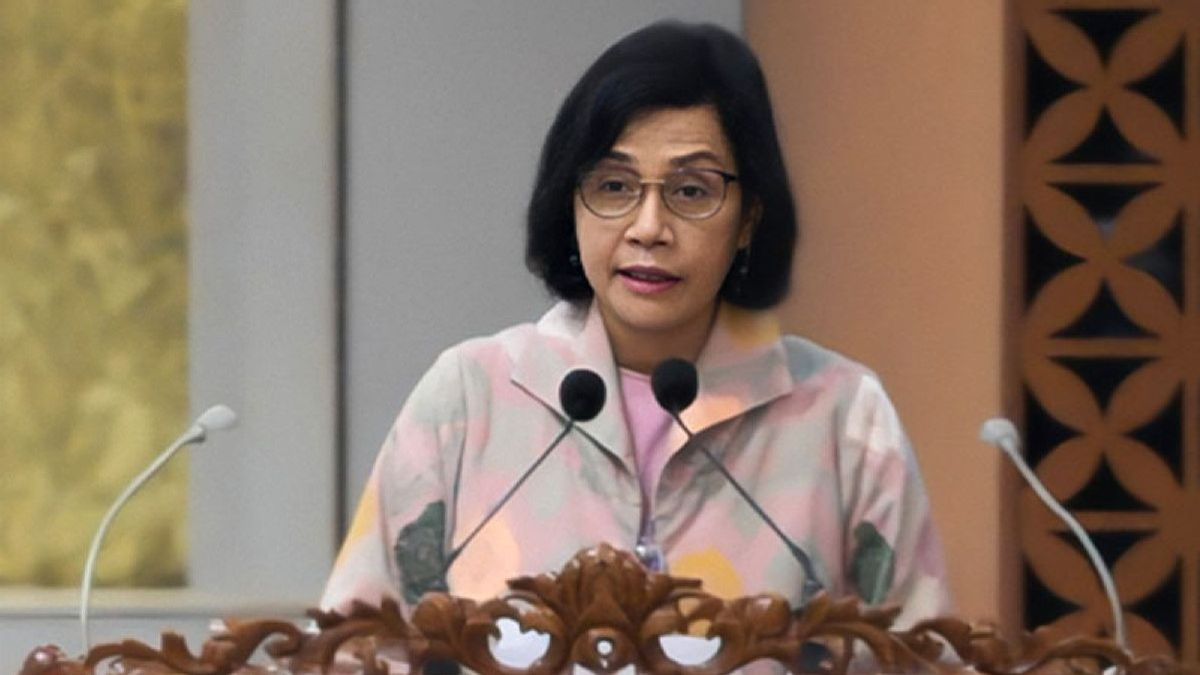JAKARTA - Finance Minister Sri Mulyani Indrawati revealed that several factors caused the rupiah exchange rate to continue to weaken against the United States (US) dollar. One of them is market disappointment with the US central bank.
Sri Mulyani said that the rupiah in May 2024 had dropped to the level of Rp. 16,431 per US dollar.
The reason is negative sentiment in the global and domestic financial markets.
"It had increased both because of domestic sentiment and those from global origin," said Sri Mulyani during a press conference on our State Budget, Thursday, June 27.
According to Sri Mulyani, negative sentiment from the global financial market was triggered by the United States central bank, which will not cut its benchmark interest rate much this year.
Sri Mulyani said financial market players believed that the Fed would lower the benchmark interest rate four to five times this year. However, the potential for a reduction in the Fed Fund Rate is only once.
"However, the Fed Fund Rate is still experiencing a stable position at 5.5 percent and there are no signs that they will immediately deploy, and perhaps even the most optimistic decline is only once this year," he said.
According to Sri Mulyani, this condition makes the financial market disappointed so that the dollar index strengthens, causing the rupiah exchange rate and other countries to be depreciated.
"This is what causes disappointed market expectations, or what is not conveyed, then causes a reaction. Especially it can be seen around last April to May that our domestic factor may also be added, which causes strengthening of the index dollar which then causes depreciation from currencies including our rupiah," he said.
On the other hand, Sri Mulyani also highlighted the increasing yields of the US Treasury, which forced the US to spend a lot of bonds so that there was an outflow or capital outflow from the side of the state securities (SBN) to the stock market.
"So that the total outflow until June reached Rp9.31 trillion. This is what we may be aware of in the sense of the response from the State Revenue and Expenditure Budget (APBN), fiscal policy, is later to various posts that are affected by the exchange rate and the promptie of course from the financing side, especially in terms of issuance," he said.
SEE ALSO:
Sri Mulyani said the rupiah exchange rate had a 6.58 percent depreciation, but it was better than other countries, such as Brazil, which was appreciated 12.34 percent, and won Korea weakened 7.46 percent.
"Or if you just follow Japan experiencing very deep depreciation, even the level is already comprehensive with 1986. This certainly creates also the dynamics of our trading partner countries," he said.
The English, Chinese, Japanese, Arabic, and French versions are automatically generated by the AI. So there may still be inaccuracies in translating, please always see Indonesian as our main language. (system supported by DigitalSiber.id)
















